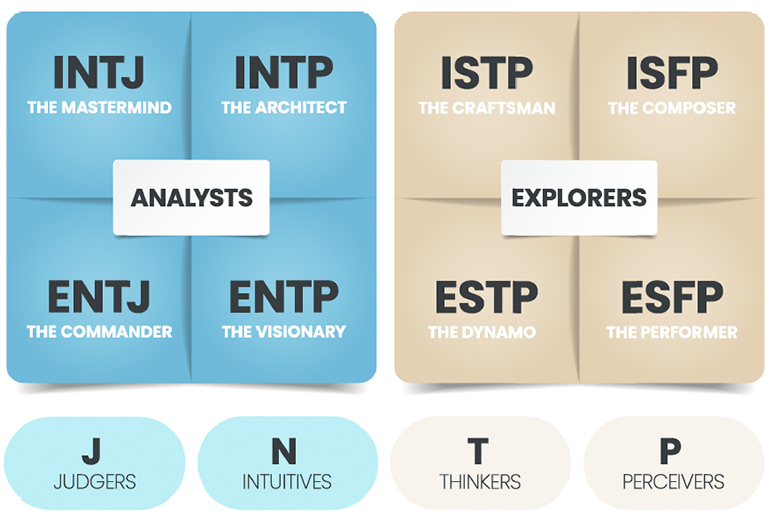How does personality play a role in communication in the pharmacy sphere? Extroverts are good at initiating conversation, but introverts tend to be empathetic, which leads to connection.
By Athena Ponushis

Pharmacists have been called to take care of people. And with that calling comes complicated conversations. Healthcare and medications present various complexities. A little self-awareness may help pharmacists leverage their strengths to connect with patients and build trust.
A recent study on the impact of personality types on communication skills, conducted across four colleges of pharmacy, suggests that communicating well with other people might start by connecting with yourself.
Personality tests can reveal who we are, or who we think we are, showing us the character traits that we possess. The results of these assessments can be applied in practical ways. By taking personality tests, student pharmacists can see their strengths and their blind spots, helping them identify where they need more coaching so they can improve communication with patients and peers.
“By fostering a learning environment where students can discover these traits, we are helping them see how they fit into the profession and how they are going to help take care of patients,” said Dr. Stephanie Hunziker, director of skills and simulation, and clinical associate professor of pharmacy practice, at Southern Illinois University Edwardsville (SIUE) School of Pharmacy. “We are empowering them, in turn, to become more confident with their communication skills by creating an environment that allows them to discover their strengths.”
Giving students the opportunity to highlight their strengths can help teachers work with them on any challenges they may have. “We often think about what we can’t do, rather than what we can do, but we can leverage what we can do to address the areas we want to develop,” said Dr. Lucio Volino, clinical professor and director of assessment at the Ernest Mario School of Pharmacy, Rutgers University, who also manages clinical services at Barnabas Health Retail Pharmacies—RWJBarnabas Health.
Volino guides students through strength-finding exercises when they do not see their own strengths, showing them how to improve in areas where they may not feel as confident. If a student wants to enhance their communication skills, he asks them to think: Am I an achiever? Am I empathetic? How can I use that in moments when I am feeling nervous or stressed out? “It’s really thinking about communication as a method to not only communicate with other people, but also to help yourself figure out, ‘How can I get the message I want to the people around me so I can succeed and deliver what is needed?’”
Knowing Your Strengths
Hunziker has always been fascinated by personality types and how they impact professionalism and work life. She has also been passionate about teaching effective communication. “It’s important to know as a pharmacist, healthcare professional and really just in life, but particularly when taking care of patients, that effective communication is essential, especially when we are educating people about the appropriate way to take their medications,” she said.


 “It’s important to know as a pharmacist, healthcare professional and really just in life, but particularly when taking care of patients, that effective communication is essential, especially when we are educating people about the appropriate way to take their medications.”
“It’s important to know as a pharmacist, healthcare professional and really just in life, but particularly when taking care of patients, that effective communication is essential, especially when we are educating people about the appropriate way to take their medications.”  “How do you identify those individuals around you and how can you work with them, rather than just focusing only on you. It means thinking about others and how you can work together to highlight strengths and create a well-balanced team.”
“How do you identify those individuals around you and how can you work with them, rather than just focusing only on you. It means thinking about others and how you can work together to highlight strengths and create a well-balanced team.”
